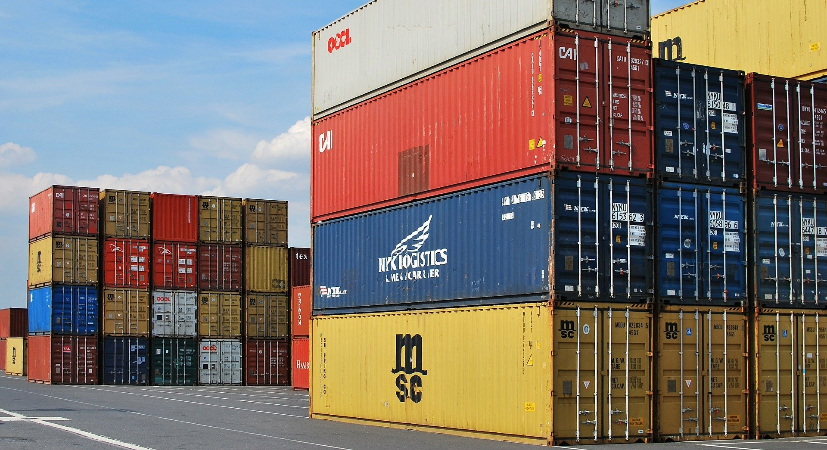
While President Joe Biden and former President Donald Trump seemed to disagree on practically everything during last month’s presidential debate, one policy area where they seemed to largely be in agreement was trade. Unfortunately for the American people, the two frontrunners for the presidency seem to agree that tariffs—in particular those imposed on Chinese imports—are good for the American economy. This view could not be further from the truth.
During the debate, President Trump advocated for the imposition of a 10 percent tariff on all goods being imported into the United States. When asked how he would ensure that these tariffs do not drive prices even higher during a period of record inflation, the former president denied that his proposed policy would have that effect. While President Biden did attempt to push back against President Trump’s claims pertaining to the imposition of a 10 percent tariff by remarking that the tariffs would “cost the average American $2,500 a year,” President Trump rightly noted that President Biden has done very little to reverse the Trump administration’s trade policies and has—in many respects—doubled down on them.
Nowhere is this more evident than with Section 301 tariffs. As National Taxpayers Union Foundation recently explained, former U.S. Trade Representative (USTR) Robert Lightzinger imposed four rounds of increased tariffs on U.S. imports from China in 2018 in a bid to discourage China’s bad practices pertaining to intellectual property and technology transfer. As of May 2024, these tariffs have cost American consumers approximately $215 billion and have done very little to prevent continued abuses of intellectual property and technology transfer. In 2020, the USTR issued a variety of tariff exclusions on medical-care devices in a bid to counteract a shortage of medical supplies in the wake of the Covid pandemic. This strategy helped to alleviate shortages of vital medical equipment.
Rather than learn from this experience and repeal the economically disastrous Section 301 tariffs, Lightzinger’s successor—Katherine Tai—and the Biden administration doubled down on the Trump-era policy. Earlier this year, the Biden administration announced its intention to quadruple tariffs on electric vehicles to over 100 percent, double tariffs on semiconductors to 50 percent, and impose a new 25 percent tariff on STS cranes.
Since then, countless market stakeholders ranging from small businesses to industry coalitions have submitted comments to the USTR’s office outlining the potential economic harm that this policy may cause. Below are some of the more notable testimonies on how these new Section 301 tariffs will adversely impact the American economy:
- Bethann Rooney from the Port Authority of New York and New Jersey: “Imposing this tariff on STS cranes . . . would neither address China’s unreasonable and discriminatory policies and practices that burden or restrict U.S. commerce nor further the Administration’s Build America Buy America Goals as there is no option to ‘buy America’ for this equipment. Instead, compliance with the tariffs would increase costs on US ports, businesses, and consumers.”
- Jonathan Gold from the National Retail Federation: “The impact, as we have seen from other tariff increases, would only be to increase costs for those companies that import these products. Those costs will either be absorbed by these companies, impacting their bottom line and ability to reinvest in their company and workers or potentially be passed along to their customers.”
- Jennifer Thornton from the Business Roundtable: “Lithium-ion batteries are used in a wide array of everyday products . . . The increased cost of [lithium ion batteries] because of the Section 301 tariffs has caused some to shift manufacturing and jobs from the United States to Mexico to ensure that their finished goods remain competitive in global markets, and in some instances, may lead to the disruption of clean energy projects.”
There seems to be an overwhelming consensus among market stakeholders that these new tariffs will do little to prevent Chinese firms from stealing American intellectual property and will cost American consumers, firms, and workers billions of dollars.
This consensus tracks very closely with the economic theory behind tariffs. When tariffs are imposed on a good, this necessarily results in a reduction in the available supply of that good in the domestic market. This reduction in its available supply results in an increase in its price and leaves consumers worse off.
Unfortunately, the harm does not stop there. If some of those consumers of that import use it as an input in the production of another good, the price increase may either be absorbed by the consumer through reduced profits, passed along to downstream customers through increased prices, or some combination of both.
Despite receiving bipartisan support from both Biden and Trump, comments from affected industries show that the expansion of Section 301 tariffs is wrongheaded and should be opposed.

